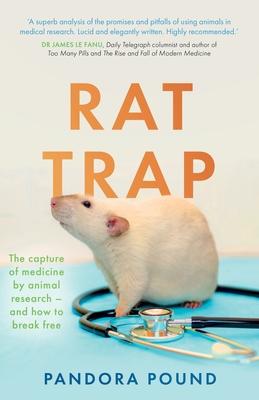With devastating logic and clarity, Dr Pandora Pound, Research Director at Safer Medicines Trust, comprehensively dismantles the case for animal research, bringing to an end the 150-year-old debate about its value once and for all. Focusing on the science rather than animal suffering - and including no distressing details - she provides a riveting account of how the practice became so well established, before proceeding to painstakingly reveal the futility and shockingly poor quality of most animal studies.
Medical progress is being thwarted by an obsolete and harmful practice, but Pound showcases the awe-inspiring technologies, both old and new, that would revolutionise medicine if only it could escape the stranglehold of animal research. Rat Trap slays the many myths about animal research and shows that, far from being a necessary evil, it is one of the most important and urgent scientific issues of our time.
'What a corker of a book! A superb analysis of the promises and pitfalls limiting the use of animals in medical research. Lucid and elegantly written. Highly recommended.' -- Dr James Le Fanu, doctor, columnist for the Daily Telegraph and author of Too Many Pills and The Rise and Fall of Modern Medicine.'Beautifully written, her arguments hum with clarity. Destined to be a classic and to make a difference in the world.' -- Dr Ricardo Blaug, political scientist and author of How Power Corrupts.'Dr Pandora Pound transformed the debate on animal experiments in 2004 as lead author of the landmark study 'Where is the evidence that animal research benefits humans?'. Published in the prestigious British Medical Journal, it provoked a storm of controversy - and a series of scientific studies revealing the startling unreliability of animals as surrogates for humans in medical research. As a result, reports of 'breakthroughs' based on animal studies now routinely carry disclaimers about the implications for patients.In Rat Trap, Dr Pound brings us up to date with this deeply controversial issue. She sets out the evidence for animal models being abandoned as a matter of urgency, and shows how resistance from some elements of the scientific community poses a grave threat to medical progress.' -- Robert Matthews, visiting professor in statistical science, Aston University, Birmingham, UK, and author of Chancing It and 25 Big Ideas
